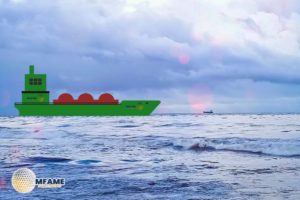- The EU’s new FuelEU Maritime regulation, effective Jan. 1, 2024, mandates emission reductions for ships over 5,000 gross tonnage at EU ports, increasing shipping costs and freight rates.
- Alternative fuels like biodiesel and LNG present compliance options but face challenges such as limited supply and competition from other sectors like aviation.
- Companies may use pooling systems or allowance trading to manage compliance, benefiting fleets with vessels already equipped for alternative fuels.
The European Union’s FuelEU Maritime regulation, effective Jan. 1, 2024, introduces stricter emission standards for shipping, aiming to reduce greenhouse gas emissions. While this regulation marks a significant step toward decarbonizing the industry, it also raises costs for shipping companies and consumers. Here’s a breakdown of the regulation’s impact on the shipping sector and compliance strategies, reports Reuters.
New Emission Standards for Shipping
The FuelEU Maritime regulation applies to commercial ships above 5,000 gross tonnage operating at EU ports. It mandates annual emission reductions starting in 2025, increasing progressively until 2050.
Non-compliance results in penalties, while greener fuels like biodiesel and LNG help ships meet the standards.
Rising Costs and Freight Rates
Compliance with the regulation will inflate shipping costs, primarily due to the premium prices of alternative fuels and penalties for non-compliance.
Shipbrokers project these costs will translate into higher freight rates, which businesses and consumers will ultimately bear.
Challenges with Alternative Fuels
Biofuels and LNG are seen as viable options, but their supply is limited. Competition from aviation, which is accustomed to paying a premium for refined fuels, adds further pressure.
These factors could complicate efforts to meet the regulation’s emission targets.
Pooling and Allowance Trading as Compliance Strategies
Marine consultancy DNV highlights pooling systems as a potential solution. Ships with emissions below the required threshold could create a surplus to make entire fleets compliant.
Alternatively, companies could trade allowances, with vessels running on LNG potentially enabling multiple ships to meet regulatory standards.
Did you subscribe to our daily Newsletter?
It’s Free Click here to Subscribe!
Source: Reuters


















